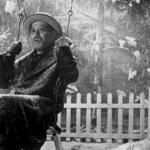Review of Total Recall, Directed by Len Wiseman
By ALEXIS NEAL
Factory worker Doug Quaid is dissatisfied with his lot. He lives in a miserable post-apocalyptic world that is sharply divided along economic lines. What remains of humanity is crammed into two vastly overcrowded zones—the United Federation of Britain, home of the haves, and what is known as the Colony (modern day Australia), home of the have-nots. Every day he takes ‘The Fall’ through the center of the earth to put in another day at the same dead end job. He talks to the same people. He comes home every night to his crummy apartment and his (admittedly hot) wife. And every night, he is plagued by a recurring nightmare filled with danger, fear . . . and a woman he’s never met. In the midst of all this, he longs to be a part of something more—something that matters. Eager to add a little adventure, a little meaning, to his life, Doug pays a visit to Rekall, a company specializing in manufactured memories. But the pre-op brain scan reveals that Doug may not be who he always thought he was. Now he’s on the run, and powerful people want him dead, for reasons he doesn’t fully understand. With a little help from the girl of his dreams (no, really), Doug sets out to discover his true identity, as millions of lives hang in the balance.
First off, a disclosure. I have not seen the original Total Recall. Clearly, this is a character defect on my part, as all early Arnold films are cinematic masterpieces. So if there were hidden nods to the original, or if the filmmakers tinkered with some sacred scene or snatch of dialogue, it’s lost on me. I write to you from a place where this is the only Total Recall in existence. Won’t you join me?
Let’s start with the basics: This is a fun movie. Yes, Colin Farrell spends the bulk of the movie blundering about with a bewildered look on his face. Fortunately, Farrell does bewildered extremely well, and his wide-eyed innocence and natural charisma endear him to the audience from the get-go. Kate Beckinsdale has apparently not aged a day since Underworld, and it turns out she makes a far better villainess than a rom-com queen. The screening audience reacted audibly every time she burst into a scene, hot on the trail of our leading man and ready to beat him to a bloody pulp. Which she did quite believably on more than one occasion (take notes, Angelina Jolie in Salt). Jessica Biel was sweet enough, but was ultimately a rather uninspired choice as the mysterious ‘dream woman’. Bryan Cranston appears to have a gift for villainy, and Bill Nighy is utterly wasted on an unfortunate bit of speechifying.
But truthfully, the acting (or ‘acting’) in a film like this is just filler until the next big fight scene/action sequence can commence. And there are loads of both. The Foley guys go a bit nuts a few times (as when Beckinsdale and Biel face off wielding blows like sledgehammers, at least if the sound effects are to be believed). There is the usual slick advanced technology, including a few new (to me) ideas, including a subway through the center of the earth (complete with gravity reversal at the core), a hand phone, and a multitasking piano. The violence is largely of the ‘action’ variety (minimal gore) and the brief nudity is just that: brief (and from what I hear, fans of the original will know exactly what to expect in that department).
The heart of this movie, such as it is, focuses on identity. Is who you are dependent on who you were? Is your present self a continuation of past—a combination of all your past selves? If you become disconnected from your past, are you still you? The answer, according to this movie, is yes. You are free to start over at any time; you have only to choose to leave the past behind. The past does not matter and it has no say in who you are in the present. There are echoes here of the nearly universal desire for renewal. There is something terribly appealing about a blank slate—about being able to let go of everything that’s gone before and emerge into the future unfettered by past mistakes. Indeed, Doug Quaid’s passion for knowing his past is significantly curtailed as he begins to suspect that the past may hold some very unpleasant things—not just things that happened to him, but things within him. He may not like himself, and the thought terrifies him.
All this discussion of new identities skirts around the edges of the Christian understanding of rebirth, without ever actually landing on it. As Christians, we experience new life—the old is gone and the new has come (II Cor. 5:17). We reject what we once were and strive to take hold of and experience our new identity (Rom. 6:6-7; Eph. 4:22-24). However, this is no unilateral act; we cannot erase the past by sheer willpower. Our present (or future) actions cannot undo the past. Immediately after exhorting us that we are new creations, Paul reminds us that this change is a result of the gospel: “All this is from God, who reconciled us to himself through Christ […] not counting men’s sins against them.” (II Cor. 5:18-19) The Bible tells us that the past must be dealt with; it cannot simply be ignored. We cannot simply ‘forget’ our sins and start afresh. And even if we could forget them, God would not. Our sins follow us. We carry them with us everywhere we go. The only solution to this state of affairs—the only way to really be made new—is not amnesia, but Christ. He bore all of our sins, past, present, and future.
And this is another demonstration of the power of the past—that Christ died for us. In the past. It is finished. The penalty for sin—for the past—is costly, but it has been paid, once and for all, by the only person in all of history who never sinned. He is the only man with a perfect past, the only man who never needed to be made new, and He gave his life to erase my past. In the past He died, taking on Himself the wrath that was the just penalty for sin, to give new life and a fresh start to those who have faith in Him. And in the present, His strength enables us to reject the old self and strive to live up to what we have become, by the grace of God. Though our salvation affects how we behave in the present and the future, it does not hinge upon those actions; instead, our salvation is based on the unchangeable past actions of a holy and merciful God. For Christians, that is the true source of our identity.












